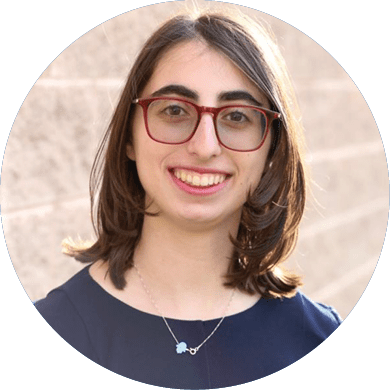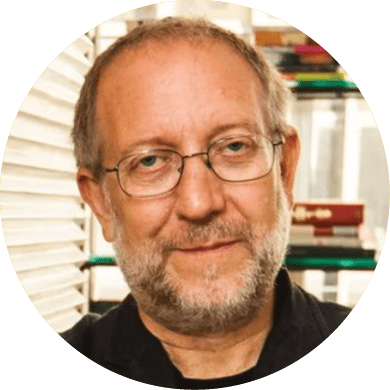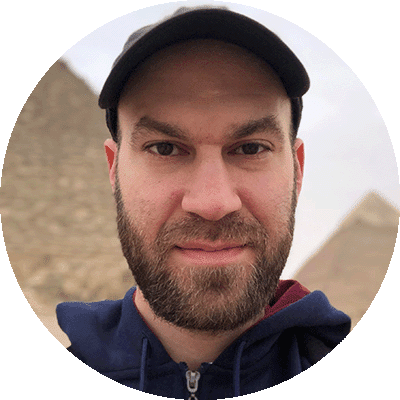Careful Consumption of Social Media 📄

The following article was originally published in the Fall 2021 Jewish Educational Leadership issue, Jewish Education Amidst Rising Antisemitism. It is being re-released in Winter 2024 in the aftermath of October 7th.
In an age of social media and social justice activism, when it comes to teaching our students about Israel, it can be challenging to find open and healthy discourse. When Ben & Jerry’s pulled selling of ice cream in what they called the “occupied” areas of Israel—my Facebook and Instagram feeds quickly became flooded with competing posts either extolling the company’s morals for taking a stand against Zionism or denouncing it for antisemitism. Perhaps we need to begin with some definitions. Antisemitism is defined as hostility to or prejudice against Jewish people; classical anti-Zionism is opposition to the premise that Jews have a right to self-determination or a state of their own. Classical anti-Zionism is mostly antisemitic, but not all criticism of Israel is anti-Zionist. Complicating this picture is that many contemporary young people use the term anti-Zionism to mean being critical of Israel, which may or may not be antisemitic. Like any country, Israel is not perfect, so that criticizing Israel is not inherently antisemitic. Misappropriation of the term anti-Zionism may, in itself, be an attempt to blur the line between legitimate criticism of the State of Israel and the illegitimate denial of the State of Israel’s right to exist. How can we distinguish between legitimate criticism and that which has crossed that line?
There are four essential questions that we must teach our students to use as guiding principles when they encounter criticism of Israel in social media. These four questions provide students with the analytical tools they need to succeed in identifying honest critique of Israeli policies from antisemitism; they ask our students to take a step back from the material and put it into perspective. The four questions are:
- Where is the post from? Does the author or organization have a history of sharing antisemitic views?
- Does the author/organization hold Israel to a double standard when it comes to critiquing government policies or actions?
- Are they holding other countries accountable for similar actions?
- Are they ever critical of questionable Palestinian policies or actions?
- Do they use Jew-baiting or other antisemitic tropes?
- Are they delegitimizing Israel’s right to exist as a Jewish state rather than criticizing individual government policies?
Let’s explore these a little deeper.
Part of being a media consumer is understanding that most news sources have a political bias, so that they shape the news to promote their agenda rather than simply provide reporting on it. Identifying the source helps us to recognize its potential biases, and hence its trustworthiness and value in shaping our opinions. This is true whether we are talking about media within the Jewish world, where there are left-leaning organizations like J Street and right-leaning organizations like Algemeiner, or in the general media. This is even more important when looking at anonymous postings, where it is more difficult to find the author’s predispositions or biases.
This moves us into the second question, the double standard issue, that is, the consideration of what else the author has posted can also help to identify biases. For example, when a friend posts a comment in the name of social justice condemning Israel, is that friend similarly concerned about the rights of Uyghurs in China, LBGTQ+ rights in the Palestinian Authority, or the systematic repression of various civil rights in dozens of other countries? When someone posts about the occupation of the West Bank, does he or she also post about occupation of Tibet or Crimea? If the posts are only about Israel, then perhaps human rights or social justice is not their primary motive. There might be an anti-Zionist or antisemitic agenda, perhaps even simply a desire to seem “woke” or to gain followers is driving the posting.
What about the language and imagery used—is it meant to inflame or inform? Does it include stereotypes and generalizations to describe Israel? Does it use the language of Jew-baiting, the motif of blood libels, perhaps the tropes of Jews controlling (Congress, the world, etc.) through money, or comparisons to Nazi Germany? All these are red flags for antisemitism and should give the reader cause to question both the intentions and the accuracy of the post.
Investigating these questions will often point a clear direction to answering the fourth question—is the critique one of specific Israeli policies or an attempt to delegitimize the entire Zionist enterprise.
Let’s take a look at two examples.
Scrolling through social media, a student sees a number of posts on their Instagram on the recent Sheikh Jarrah protests. The first post is placed by an anonymous account. It looks at the violence that many of the protestors are facing; showing a short clip of some of the sounds of tear gas grenades used by police to try to disrupt and stop the protests. The caption reads: “Liberate Jerusalem! Stand-up to Colonialist Jews! End the Occupation! From the river to the sea, Palestine should be free!”
Using these four questions, the student can pause and break down the post.
- Where is the post from? Does the author/organization have a history of sharing anti-Jewish views?
This anonymous account does not have affiliates or organizations listed. Scrolling through this account one can see they only post about the conflict surrounding Sheikh Jarrah. Most posts seem to call for violence against Israelis as well as call for a Free Palestine. A number of posts generalize this violence to all Israelis and view Israel as a colonial power that has caused a nakba, calamity or destruction, towards Palestinians. While not inherently antisemitic the posts are clearly anti-Zionist with an agenda to delegitimize and undermine the State of Israel.
- Does the author/ organization hold Israel to a double standard when it comes to critiquing government policies or actions?
The goal of this account is to highlight and document what is happening in the Jerusalem neighborhood of Sheikh Jarrah. As this account only focuses on one specific issue, the extent to which the author holds Israel to a double standard cannot be fully determined. However, when looking at what one’s friends share and post, when a friend only focuses on the conflict between Israelis and Palestinians and seems to turn a blind eye to other countries and their conflicts or focuses on actions by Israelis against Palestinians but not Palestinians against Israelis, a student should be able to recognize the double standards at play.
- Do they use Jew baiting or other antisemitic tropes?
Jew-baiting is seen with the use of calling for a stand against colonialist Jews. Statements such as these paint a picture that all Jews are responsible for the challenges many Palestinians face; it makes no distinction between Jews and Israelis as well as no distinction between Israelis and Israeli government policies. The inability to distinguish between Israelis and Jews or Israel and Israelis, clearly flags this post and the post-er as unreliably antisemitic.
Other forms of Jew-baiting can look like a Nazi insignia on an Israeli flag or claiming that Jews control money, politics, news outlets, etc.
- Are they delegitimizing Israel’s right to exist as a Jewish state rather than criticizing individual government policies?
The call for a “Free Palestine from the river to the sea” and violence against Israelis delegitimizes Israel’s right to exist as a Jewish state. The reference “from the river (i.e., the Jordan River) to the sea (i.e., the Mediterranean) leaves no room for Israel’s existence. Posts focusing on the nakba and the dislocations of Palestinian society that resulted from Israel’s emergence as a State but which neglect the experience of Jews who were forced to leave the West Bank by Jordan or the exile of Jews from most Arab countries during that same period indicates that the anonymous account is less than transparent about its anti-Zionist agenda.
After examining the post through the lens of these four questions, students can determine that the post is not just critical of Israeli policies, but patently anti-Zionist and antisemitic. The call for violence against Israel and Jews as well as not offering tangible resources to support positive change through legitimate organizations or proper authorities challenges the trustworthiness and reliability of this account. As mentioned above, the inability to distinguish between Israelis and Jews or Israel and Israelis, clearly flags this post and the post-er as unreliably antisemitic.
By contrast, another post on Sheikh Jarrah showcases the families being evicted and calls for individuals to call on the Israeli government to prevent the eviction of these Arab families from the homes in which they have lived for years. The post highlights pictures of the Arabs who live in Sheikh Jarrah and each post gives a summary of their lives and resources on how one can assist these families. It also highlights the inequality of Jews and Arabs in cases like these—Arab families who fled or abandoned their homes in the War of Independence have no legal recourse to reclaim them but Jewish families who fled or abandoned their homes can regain ownership in court. Again, by going through each of the questions, the student would see that this post, which came from an account just focusing on Sheikh Jarrah, may pose a legitimate criticism of Israel and its policies. When put to the test of the four questions, it is clear that the post is focused on improving the lives of Palestinians, avoids stereotyping, generalizations, incendiary language, delegitimization, and acknowledges the complexity of the issue of reclaiming property lost during armed conflict long after the end of the conflict. The critique leveled in the post cannot at face value be described as antisemitic or anti-Zionist.
As the face of social justice activism changes and utilizes social media, students must be able to dissect posts and recognize when a post is antisemitic and should be reported or discussed with a friend and/or when it is anti-Zionism and a chance to open dialogue and engage with the other side.
The ability to consume social media critically not only offers students the ability to counter attacks on Israel but enables them to look at all media critically. It will demand that they have a better understanding of the history of Israel and will challenge them to be able to consider positions different from their own and even to be constructively critical of Israel. These skills will help them navigate the complexities of antisemitism in the context of anti-Zionism as they will be able to articulately explain why a comment is or is not antisemitic and begin to conduct healthy and productive conversations.

Reach 10,000 Jewish educational professionals. Advertise in the upcoming issue of Jewish Educational Leadership.
Do you want to write for Jewish Educational Leadership? See the Call for Papers for the upcoming issue.

From The Editor: Winter 2024
When we published our issue on antisemitism two years ago, some thought that we were being alarmist. In retrospect, it seems like the antisemitic sentiments we were sensing were just the tip of the iceberg. The surge of Jew-hatred in the United States and abroad, from college campuses to workplaces to the streets of New York, Paris, London, Sydney, and so many more places, leaves us reeling with questions. How did we get to a place where the presidents of Harvard, Penn, and MIT speaking to a congressional committee could not say unequivocally that calling for the genocide of the Jews is considered harassment and violates campus rules?

Understanding the New Antisemitism with Yossi Klein Halevi – 2024 Update 📄🎬
I think we’re experiencing a phenomenon that we can call massacre denial or massacre trivialization. And I don’t like Holocaust comparisons to Israel’s situation. But in one way I do believe that a Holocaust analogy is legitimate and that is in in how the historicity of October 7th is being treated and the uniqueness of October 7th. What makes October 7th unique is that it was not a pogrom, these were premeditated atrocities. And the purpose of the atrocities, was to instill terror. So what is happening to the memory of October 7th, the understanding of what October 7th was, is very similar to what Holocaust memory has been subjected to in large parts of the world.

From Fear to Resilience – 2024 🎬
The whole world has changed. I feel like we’re at a historic moment for the Jewish people. This is one of the major, major dividers within the Jewish world today. Those who have never really known Jewish vulnerability and those who know it and feel a deep in their kishkes. And I think that divide has been kind of blown up right now. We’ve known through the statistics that antisemitism has been on the rise for the last many years. And I think Pittsburgh, Tree of Life, really changed in some ways the American Jewish condition. It kind of woke us up to the fact that it can happen here.

Building Jewish Strength – 2024 🎬
I think among the things that are concerning for me is that the people that I work with, and I’m in a Reform congregation, we’re a very large community with a lot of diversity within that community. I think that what is particularly concerning to me is that our people are so caught off guard and surprised. That all of the sudden in 2023, all of the sudden it’s as if there wasn’t antisemitism before October 7th. We either had our heads in the sand or we were just kind of in a position of not really acknowledging the extent to which antisemitism is still a part of the human existence. I won’t say the Jewish existence because I think antisemitism and anti- antisemitism is more than a Jewish concern.

Confronting the Campus Crisis – 2024 update 📄🎬
I think what we’re seeing now is a globalization of antisemitism and it’s become a mass movement in the name of anti-Israel activism, in the name of anti-Zionism, which is not to say that anti-Zionism automatically equals antisemitism, but the way that anti-Zionism is expressed particularly now, is in an antisemitic way. One example, for instance, maybe you would a draw a Venn diagram and you would have a big circle and that big circle says criticism of Israel. Then you have another circle, which is antisemitism, and then you have a bit of an overlap. And the overlap seems to have increased recently. Why that is, is because Hamas is in itself an antisemitic organization.

Antisemitism, Debating a Lie – 2024 🎬
The most concerning thing I find about the uptick in antisemitism is the lack of knowledge on the part of Jewish students and others about the real history of the situation. The kids don’t know how to have a cogent debate. They don’t have the knowledge. They don’t have the history to truly stand up and speak truth to lies. And that actually is the most disturbing thing. If there’s violence, it’s obviously extremely disturbing. But I’m not as worried about that as the long term issues, both on college campuses and now on high school campuses, where the lack of knowledge and the level of ignorance is so profound that I think we are in a strategically dangerous spot with our youth who don’t know.

Seeing Antisemitism Clearly – 2024 🎬
The time when my thinking on antisemitism changed the most in the last five years was actually 2021, not now. In 2021, we had a similar situation on a smaller scale to what we have now, which is Israel and Hamas fighting and violence against Jews outside Israel. Hate crimes, attacks both at protests but also just on the street. And the thing that changed my thinking the most was not fighting in Israel and was not even those attacks. But it was how the reaction to those attacks from people who are most likely to stand up for minority groups who are being subjected to racism or prejudice was anything ranging from apathy to justifying or contextualizing the violence.

Antisemitism – So Close to Home – 2024 Update 📄🎬
I appreciate the opportunity, unfortunately, to revisit the question of antisemitism and the Jewish day school landscape. And it was almost like looking back at an innocent time to think about the Pittsburgh experience, which is what I wrote about, the proximity of my experience to the three congregations that were massacred in the Tree of Life building. At that time I definitely had it in the context of, well, I’m not surprised. I’m a child of Holocaust survivors. This is going to happen periodically. The big difference was the feeling that the world and the communities and the rational universe were very empathetic and sympathetic to what happened to the Jews in our community.






